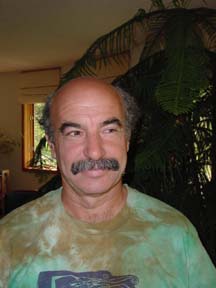by Ian MacKinnon from the Guardian
KALIMANTAN, Indonesia - The numbers are damning. Within 15 years 98% of the rainforests of Indonesia and Malaysia will be gone, little more than a footnote in history. With them will disappear some of the world’s most important wildlife species, victims of the rapacious destruction of their habitat in what conservationists see as a lost cause. 0404 07Yet this gloomy script was supposed to have included a small but significant glimmer of hope. Oil palm for biofuel was to have been one of the best solutions in saving the planet from greenhouse gases and global warming. Instead the forests are being torn down in the headlong rush to boost palm oil production.
More startling is that conservationists believe the move to clear land for this “green fuel” is often little more than a conspiracy, providing cover to strip out the last stands of timber not already lost to illegal loggers. In one corner of Kalimantan, the Indonesian part of Borneo, a mere 250,000 hectares or 1,000 sq miles - almost twice the size of Greater London - of the 6m hectares of forest allocated for palm oil by the government have actually been planted.
KALIMANTAN, Indonesia - The numbers are damning. Within 15 years 98% of the rainforests of Indonesia and Malaysia will be gone, little more than a footnote in history. With them will disappear some of the world’s most important wildlife species, victims of the rapacious destruction of their habitat in what conservationists see as a lost cause. 0404 07Yet this gloomy script was supposed to have included a small but significant glimmer of hope. Oil palm for biofuel was to have been one of the best solutions in saving the planet from greenhouse gases and global warming. Instead the forests are being torn down in the headlong rush to boost palm oil production.
More startling is that conservationists believe the move to clear land for this “green fuel” is often little more than a conspiracy, providing cover to strip out the last stands of timber not already lost to illegal loggers. In one corner of Kalimantan, the Indonesian part of Borneo, a mere 250,000 hectares or 1,000 sq miles - almost twice the size of Greater London - of the 6m hectares of forest allocated for palm oil by the government have actually been planted.
Powered by ScribeFire.

No comments:
Post a Comment